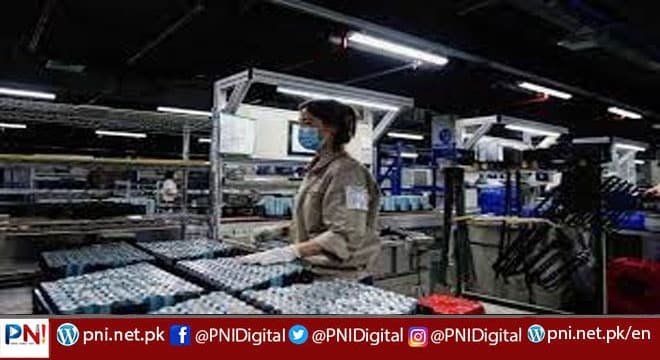Beijing, Oct 31 (AFP/APP):Factory activity in China plunged more than expected in October, official data showed Sunday, suggesting the industrial sector continued struggling as it grappled with tight power supply and surging raw material costs.
The key Purchasing Managers’ Index (PMI) — a gauge of manufacturing activity in the world’s second-largest economy — fell to 49.2 this month, down from 49.6 in September, said the National Bureau of Statistics (NBS).
This marks the second straight month in which China’s PMI dipped below the 50-point mark separating growth from contraction.
A Bloomberg poll of economists had pegged the reading at 49.7, which would have been a slight improvement.
Although the country’s PMI contracted when the spread of Covid-19 — which first surfaced in the central city of Wuhan — forced most business activity to a halt, life has largely returned to normal as strict measures brought the outbreak under control.
But the NBS said Sunday: “In October, due to factors such as still-tight power supply and the high costs of some raw materials, the manufacturing PMI fell.”
Both the production and new-order indexes were in contraction, pointing to weakening supply and demand, senior statistician Zhao Qinghe said in a statement.
Meanwhile, the price index continued rising, reflecting higher purchase prices of raw materials such as petroleum and coal, and that of sales costs.
The production index has fallen to among its lowest levels since 2005, said Pinpoint Asset Management chief economist Zhiwei Zhang — warning of stagflation.
“A worrying sign is the passthrough of inflation from input prices,” he said, adding this could pile pressure on consumer inflation.
Tommy Xie of OCBC Bank told AFP that smaller companies appear to be “paying the price for the power shortages”, suggesting the need for more policy support.
Non-manufacturing activity fell in October also, official data showed, as authorities noted “the recovery of the service industry has slowed”.
China’s non-manufacturing PMI came in at 52.4, down from 53.2 in September.
While the reading still indicates expansion, helped by holiday activity in early October, the NBS said the threat of local outbreaks continued to cast a pall over consumer sentiment.
“The real situation could be worse,” said Nomura chief China economist Lu Ting, noting that surveys may not reflect the impact of escalating anti-virus measures in late October.
“We expect another round of cuts of growth forecasts,” Lu added.
Follow the PNI Facebook page for the latest news and updates.









